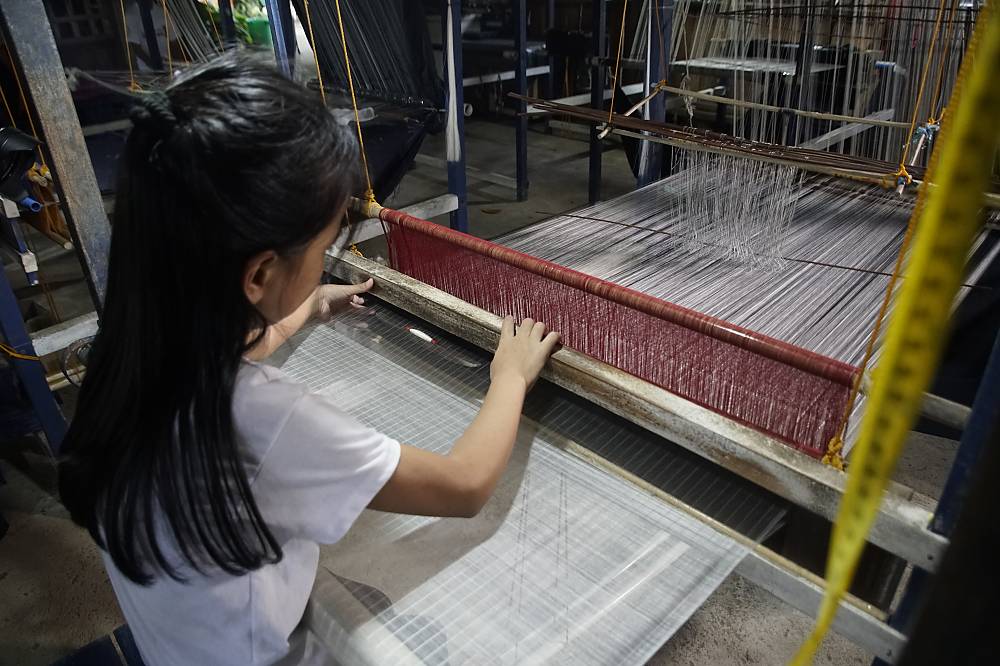Aklan's piña weaving inscribed on UNESCO's Intangible Cultural Heritage of Humanity list
This is the fifth heritage element from the Philippines to be inscribed on the prestigious list
By John Legaspi
Dubbed by many as “the queen of Philippines handwoven textiles," the piña has been used in making the country’s traditional garbs and other artisanal products. The art of making the textile is getting the spotlight it deserves as it is now inscribed on the United Nations Educational, Scientific, and Cultural Organization (UNESCO)'s Intangible Cultural Heritage of Humanity list, marking the first intangible cultural heritage from the Visayas region to be inscribed.

According to the National Commission for Culture and the Arts (NCCA), the craft and tradition of the handwoven piña or pineapple textile of Aklan are inscribed on the UNESCO Representative List of the Intangible Cultural Heritage of Humanity on Dec. 6 during the 18th Session of the Intergovernmental Committee for the Safeguarding of the Intangible Cultural Heritage in Kasane, Botswana. Aklan’s piña handloom weaving is part of the 45 nominations submitted from around the world for inscription.
“We express our deep gratitude to UNESCO and the Intergovernmental Committee for inscribing the Aklan piña weaving tradition under UNESCO’s Representative List of Intangible Cultural Heritage,” Amb. Junerver Mahilum-West, permanent delegate of the Republic of the Philippines to UNESCO, says. “This acknowledgment embraces the unique cultural identity of the Aklanon people and promotes inclusivity across the Philippines. We share this cherished tradition with the whole world… Thank you for this recognition of the Philippines’ diverse cultural heritage.”
UNESCO's Intangible Cultural Heritage of Humanity list aims to protect the important intangible cultural heritage of the world, such as oral traditions, performing arts, social practices, rituals, festive events, knowledge and practices concerning nature and the universe or the knowledge and skills to produce traditional crafts. Apart from Aklan’s piña weaving heritage, the hudhud chants and the punnuk ritual of the Ifugao, the Darangen epic of the Meranaw, and the buklog ritual of the Subanen were previously inscribed on the said list.
“We wholeheartedly express our gratitude for this recognition, which inspires us to safeguard their heritage and affirms the importance of our contribution to the richness of human creativity,” Hon. Victorino Mapa Manalo, chairman of the NCCA and executive director of the National Archives of the Philippines, muses.
Hello, readers! Do you have a story you want us to feature? Send us a message on Facebook, Instagram, Tiktok, and X and let’s talk about it.